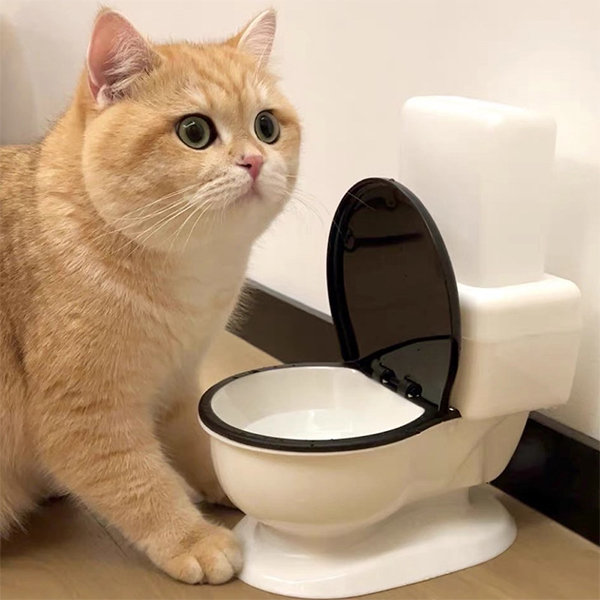Reasons You Should Never Flush Cat Poop Down Your Toilet - Important Information
Reasons You Should Never Flush Cat Poop Down Your Toilet - Important Information
Blog Article
Just how do you actually feel when it comes to How to Dispose of Cat Poop and Litter Without Plastic Bags?

Intro
As cat proprietors, it's essential to be mindful of how we dispose of our feline buddies' waste. While it might seem hassle-free to flush feline poop down the bathroom, this practice can have destructive effects for both the environment and human health.
Alternatives to Flushing
The good news is, there are more secure and much more responsible methods to deal with cat poop. Take into consideration the adhering to alternatives:
1. Scoop and Dispose in Trash
One of the most typical method of dealing with cat poop is to scoop it into a naturally degradable bag and throw it in the trash. Be sure to use a specialized clutter inside story and dispose of the waste promptly.
2. Usage Biodegradable Litter
Choose biodegradable cat trash made from products such as corn or wheat. These litters are environmentally friendly and can be securely gotten rid of in the garbage.
3. Hide in the Yard
If you have a lawn, consider burying feline waste in a designated area far from vegetable yards and water sources. Make sure to dig deep adequate to prevent contamination of groundwater.
4. Set Up a Pet Waste Disposal System
Buy an animal garbage disposal system specifically designed for cat waste. These systems use enzymes to break down the waste, minimizing smell and environmental effect.
Health and wellness Risks
In addition to ecological concerns, purging feline waste can also present health dangers to human beings. Cat feces might contain Toxoplasma gondii, a parasite that can create toxoplasmosis-- a possibly extreme disease, especially for pregnant females and people with weakened immune systems.
Environmental Impact
Purging cat poop presents harmful pathogens and bloodsuckers right into the water system, positioning a substantial risk to aquatic communities. These pollutants can negatively affect aquatic life and concession water top quality.
Final thought
Accountable animal ownership expands past supplying food and shelter-- it also entails proper waste monitoring. By avoiding flushing pet cat poop down the bathroom and choosing alternative disposal approaches, we can decrease our environmental impact and safeguard human health and wellness.
Why You Should Never Flush Cat Poop Down the Toilet
A rose by any other name might smell as sweet, but not all poop is created equal. Toilets, and our sewage systems, are designed for human excrement, not animal waste. It might seem like it couldn’t hurt to toss cat feces into the loo, but it’s not a good idea to flush cat poop in the toilet.
First and foremost, assuming your cat uses a litter box, any waste is going to have litter on it. And even the smallest amount of litter can wreak havoc on plumbing.
Over time, small amounts build up, filling up your septic system. Most litter sold today is clumping; it is made from a type of clay that hardens when it gets wet. Ever tried to scrape old clumps from the bottom of a litter box? You know just how cement-hard it can get!
Now imagine just a small clump of that stuck in your pipes. A simple de-clogger like Drano isn’t going to cut it. And that means it’s going to cost you big time to fix it.
Parasitic Contamination
Believe it or not, your healthy kitty may be harboring a nasty parasite. Only cats excrete Toxoplasma in their feces. Yet it rarely causes serious health issues in the cats that are infected. Most people will be fine too if infected. Only pregnant women and people with compromised immune systems are at risk. (If you’ve ever heard how women who are expecting are excused from litter cleaning duty, Toxoplasma is why.)
But other animals may have a problem if infected with the parasite. And human water treatment systems aren’t designed to handle it. As a result, the systems don’t remove the parasite before discharging wastewater into local waterways. Fish, shellfish, and other marine life — otters in particular — are susceptible to toxoplasma. If exposed, most will end up with brain damage and many will die.
Depending on the species of fish, they may end up on someone’s fish hook and, ultimately on someone’s dinner plate. If that someone has a chronic illness, they’re at risk.
Skip the Toilet Training
We know there are folks out there who like to toilet train their cats. And we give them props, it takes a lot of work. But thanks to the toxoplasma, it’s not a good idea.

I'm just very intrigued by How to Dispose of Cat Poop and Litter Without Plastic Bags and I am assuming you enjoyed reading the new post. Sharing is good. You just don't know, you might be helping someone out. I recognize the value of reading our article about Can You Flush Cat Poo or Litter Down the Toilet?.
Call Today Report this page